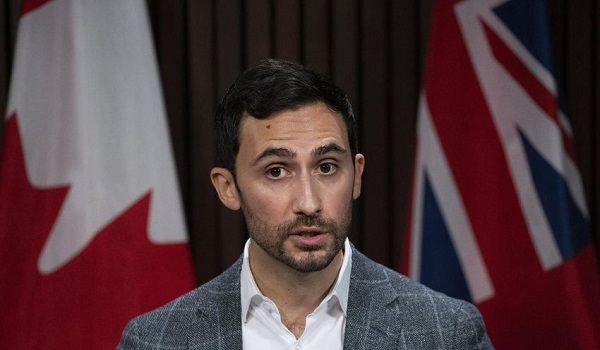Canada to set limitations on study permits for foreign students, raise financial requirement
The federal government will “significantly” limit the number of study permits issued in its attempt to tackle fraud and abuse of Canada’s international student program.
“Enough is enough,” Immigration Minister Marc Miller told a news conference on Thursday as he announced the government would raise the financial commitment required of incoming international students and restrict the weekly work hours they will be permitted.
“If provinces and territories cannot do this, we will do it for them and they will not like the bluntness of the instruments that we use. Our aim is to strike the right balance between welcoming international students and making sure they have all that they need to thrive.”
The fast-growing international student program has been in the spotlight amid the post-secondary education sector’s — and unregulated foreign agents’ — aggressive recruitment campaigns.
The number of study permit holders in Canada has tripled in the past decade, from 300,000 in 2013 to 900,000 this year. International students, through spending and tuition, contribute $22 billion to the economy and support 200,000 jobs.
Financial requirement doubles
However, the current affordable-housing crisis and rising cost of living have seen many international students struggling to seek employment and secure shelter and has led to some turning to food banks.
Starting Jan. 1, 2024, Miller said the cost-of-living financial requirement for study permit applicants will be raised from the current $10,000 to $20,635 in addition to their first year of tuition and travel costs to ensure that international students are better prepared for life in Canada.
The threshold will be adjusted each year, similarly to other immigration programs, he said, adding that the measures are necessary to rein in those post-secondary education institutions that he likens to “puppy mills” that churn out diplomas to international graduates.
Mateusz Salmassi, director of advocacy of the Canadian Alliance of Student Associations, called raising the financial requirement a step in the right direction.
“The reality is that the cost of living has dramatically changed from where it was in just a few years,” said Salmassi, whose organization represents 400,000 post-secondary students from coast to coast. “International students need a bit more of a realistic picture of what they’ll have to be ready with before they arrive.”
However, others worry the new requirement is going to create more hurdle for some to access international education in Canada.
Access ‘should be easy’
“Attending universities should not be a luxury,” said Mohamed Faris, president and CEO of the Carleton University Students’ Association, himself an international student from Dubai. “It should be affordable. It should be accessible. It should be easy for students to come to.”
Miller said both colleges and universities, as well as provinces, also share the responsibility of ensuring the integrity of the international student program and the resources available to support these students. “There is fraud and abuse, and it needs to end,” he noted.
International students and their hefty tuition fees have become a lucrative revenue stream for Canadian schools, and employers have grown accustomed to having the students to fill jobs in low-wage fast-food joints, retail, warehouses, factories and gig work.
During the pandemic, the Immigration Department lifted the 20-hour limit on weekly work hours for international students in order to alleviate their financial burdens. Miller said that policy will continue until the end of April as officials assess what the appropriate work-hour limit should be.
“Over 80 per cent of our international students are actually working over 20 hours. But 40 hours is just untenable,” said Miller. “It is not credible for someone, except for rare occasions, to work a full work week and actually study at the same time.”
While Salmassi is glad to know the uncapped work-hour rule will stay until the end of April, he said officials need to seriously consider an appropriate level of work hours when a cap is restored. A 20-hour limit, he said, would deprive students of better job opportunities and push some to work under the table.
Work cap questioned
This article was reported by The Star















